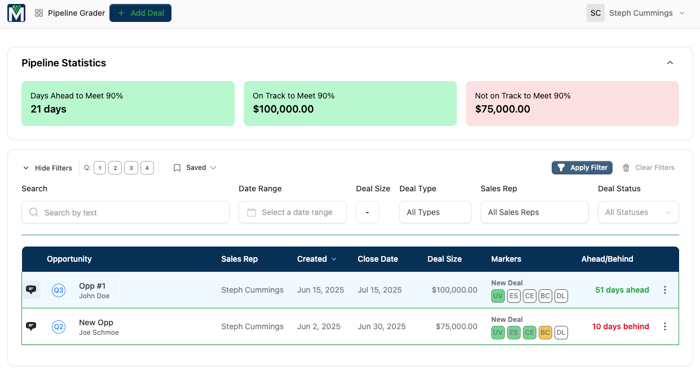Why Starting Low is a Losing Strategy
One of the great sales tactic dilemmas is when to go over your coach’s head. Let’s face it, we’ve all been there.
Whether we called high and were referred downward or chose (for some bizarre reason) to call into middle management, there comes a time when we need access to senior management (and that time is sooner rather than later).
Whether we called high and were referred downward or chose (for some bizarre reason) to call into middle management, there comes a time when we need access to senior management (and that time is sooner rather than later).
When selling enterprise software, as we all know, we need (at minimum) three primary contacts: Executive Sponsor (whose money is it), Coach (day-to-day contact) and IT Enabler (tasked to make the solution work). Despite all the theory, we sometimes get lured into a lower level relationship and feel barred from calling higher in the organization.
In the ideal scenario, we initially call high (CFO or others in the C Suite). In this case, we either establish that critical relationship or we get referred downward to a Controller or other functional manager. According to the MOIC Pipeline Grader sales process, once we have identified our product uniqueness, we need to create a business case (with the customer’s data) for the Executive Sponsor that is driven by our unique product capabilities.
If we cannot secure that meeting, then we withdraw from the opportunity. This because the Coach is likely only taking one vendor to senior leadership, so if he/she won’t take us, we need to get the hint — we lost. We also need to be leery of our coach potentially being a double agent, secretly supporting our competitor while pretending to support us. The term IT Enabler may also be a misnomer, as this person is just as likely to be a blocker as an enabler.
So, how do we avoid this dilemma? The simplest way is to make the Executive Sponsor your initial contact. Even if you get referred downward, continuing to copy the senior executive on relevant correspondence with the Coach will ensure periodic updates get to him/her. This way we don’t lose contact with the Executive Sponsor and can’t get blocked by our supposed Coach from contact.

MOIC's Pipeline Grader flags risk areas such as a lack of access to an Executive Sponsor or weak differentiation. Instead of relying on gut instinct or hoping your Coach “comes through,” you have objective signals telling you when it’s time to push higher — or walk away.
Ultimately, if we cannot maintain the Executive Sponsor contact, we are going lose. If we cannot vet our business case directly with the Executive Sponsor, we are going to lose. The only remaining question is whether we withdraw or wait to be told that we lost.
If your enterprise software sales team struggles to maintain executive relationships during your sales cycles, email dave@moicpartners.com for guidance.
If your enterprise software sales team struggles to maintain executive relationships during your sales cycles, email dave@moicpartners.com for guidance.



